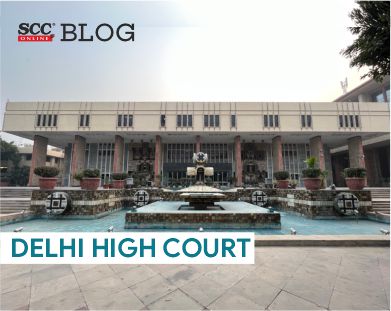Delhi High Court: The present suit was filed by Intercontinental Great Brands (plaintiff) seeking an injunction against Parle Products Private Limited (defendant), and all others acting on defendant’s behalf, from using the FAB! mark or from manufacturing, packing or selling their vanilla cream filled chocolate sandwich biscuits in the impugned pack or using the impugned trade dress a trade dress that is deceptively similar to the trade dress of the plaintiff’s OREO biscuits and biscuit packs, C. Hari Shankar, J., restrained the defendant as well others acting on behalf of the defendant from using the impugned FABIO or FAB!O mark for any purpose whatsoever and from manufacturing, packing or selling their vanilla cream filled chocolate sandwich biscuits in the impugned pack or using the impugned trade dress.
The plaintiff alleges that the defendant Parle Products Pvt. Ltd., has, in or after January 2020, introduced it s own range of biscuits under the brand —FAB!O being used only for cream-filled chocolate sandwich biscuits which were identical to the biscuits manufactured and sold by the plaintiff under the OREO trademark. The allegation of the plaintiff is that the mark on the defendant’s biscuit, though written FAB!O is bound to be pronounced FABIO. The mark is, therefore, according to the plaintiff, deceptively similar to the plaintiff’s OREO mark.
The plaintiff is further aggreived that though the defendant, under the impugned FAB!O mark, manufactures and sells vanilla as well as chocolate cream-filled sandwich biscuits, the dress of the package in which the defendant sells its vanilla cream filled biscuits is deceptively similar to the trade dress of the plaintiff’s OREO package, whereas the package in which the defendant sells its chocolate cream filled biscuits is of a different colour.
The plaintiff further alleges infringement as well as passing off, by the defendant, of the design of its OREO biscuit, which, too, is registered as a trademark in favour of the plaintiff.
The Court noted that referring to the text of the captions used by the defendants, found on its pages on Facebook the defendant has stylistically written its mark as =FAB!O’, the expression ‘!’ is merely an alphabet ‘I’ in disguise, to be pronounced as —-fab-ee-yo. Placing reliance on Rasiklal Manikchand Dhariwal v. M.S.S. Food Products, (2012) 2 SCC 196, the Court stated that the two concluding syllables of the three syllables which constitute each of the words —FABIO and —OREO being the same, i.e. —ee-yo, the names undoubtedly rhyme and rhyming word marks have been held to be phonetically similar.
The Court opined that the defendant has consciously sought to approach as close to the plaintiff’s —OREO mark as possible by adding a terminal —’O’ to its pre-existing —’FAB!’ mark. A customer of average intelligence and imperfect recollection, who is aware of the plaintiff’s vanilla cream-filled chocolate OREO cookies and the package in which it is sold and later comes across the defendant’s vanilla cream-filled chocolate FAB!O cookies, in a deceptively similar blue package, may legitimately be expected to draw an association between the FAB!O and OREO marks as both being used by the same manufacturer.
The Court interestingly remarked that the terminal —’eo’ sound in —OREO is, conceivably, one of the striking features of the plaintiff’s product, which distinguishes the biscuits in the mind of the average consumer of imperfect recollection. There is no other biscuit with a similar sounding name, with a concluding — ‘eo’ sound. When, therefore, another identical vanilla cream-filled chocolate sandwich cookie enters the market, named —FAB!O with a concluding —io sound, there is every likelihood of the lay consumer, who remembers having had the —OREO biscuit earlier, presuming a connection between the new —FAB!O biscuit and the earlier —OREO biscuit.
The Court concluded that a blue and white packing, strikingly similar to the shade of blue used in the plaintiff’s pack, was reserved for vanilla cream-filled chocolate sandwich biscuits, just as the plaintiff is doing. The defendant uses a purple packing for chocolate cream-filled chocolate sandwich biscuits. Therefore, when one compares the marks and packing used by the defendant for its bourbon biscuit, —jam-in jam-filled biscuits, chocolate cream-filled chocolate sandwich biscuits and vanilla cream-filled chocolate sandwich biscuits, it becomes immediately apparent that it is solely in respect of the vanilla cream filled chocolate sandwich biscuits, the packets are strikingly similar to those in which the plaintiff packs and sells it vanilla cream filled chocolate sandwich biscuits.
Thus, the defendant are restrained from using the impugned FABIO or FAB!O mark for any purpose whatsoever. The defendant is also restrained from manufacturing, packing or selling their vanilla cream filled chocolate sandwich biscuits in the impugned pack or using the impugned trade dress.
[Intercontinental Great Brands v. Parle Products Private Limited, 2023 SCC OnLine Del 728, decided on 10-02-2023]
Advocates who appeared in this case :
Mr. C.M. Lall, Sr. Adv. with Ms.Nancy Roy, Mr.Abhishek Kotnala and Ms.Jyotideep Kaur, Advocate for the Plaintiff;
Mr. Sandeep Sethi, Sr. Adv. with Mr. N.K.Bhardwaj, Mr. Bikash Gorai, Ms.Nabhanya Sharma, Mr.Abhiraj Jayant, Advocate for the Defendants.
*Arunima Bose, Editorial Assistant has reported this brief.


